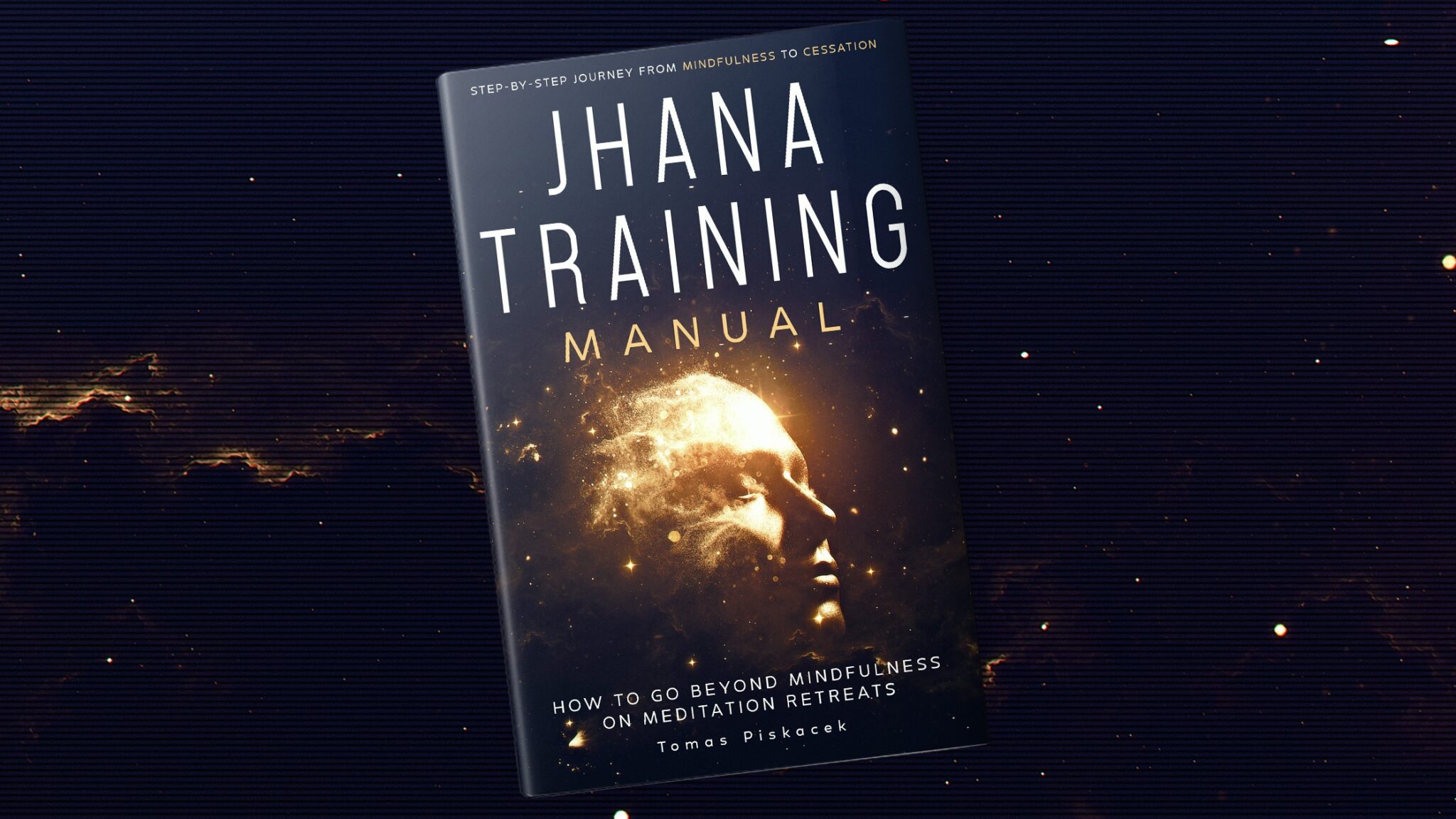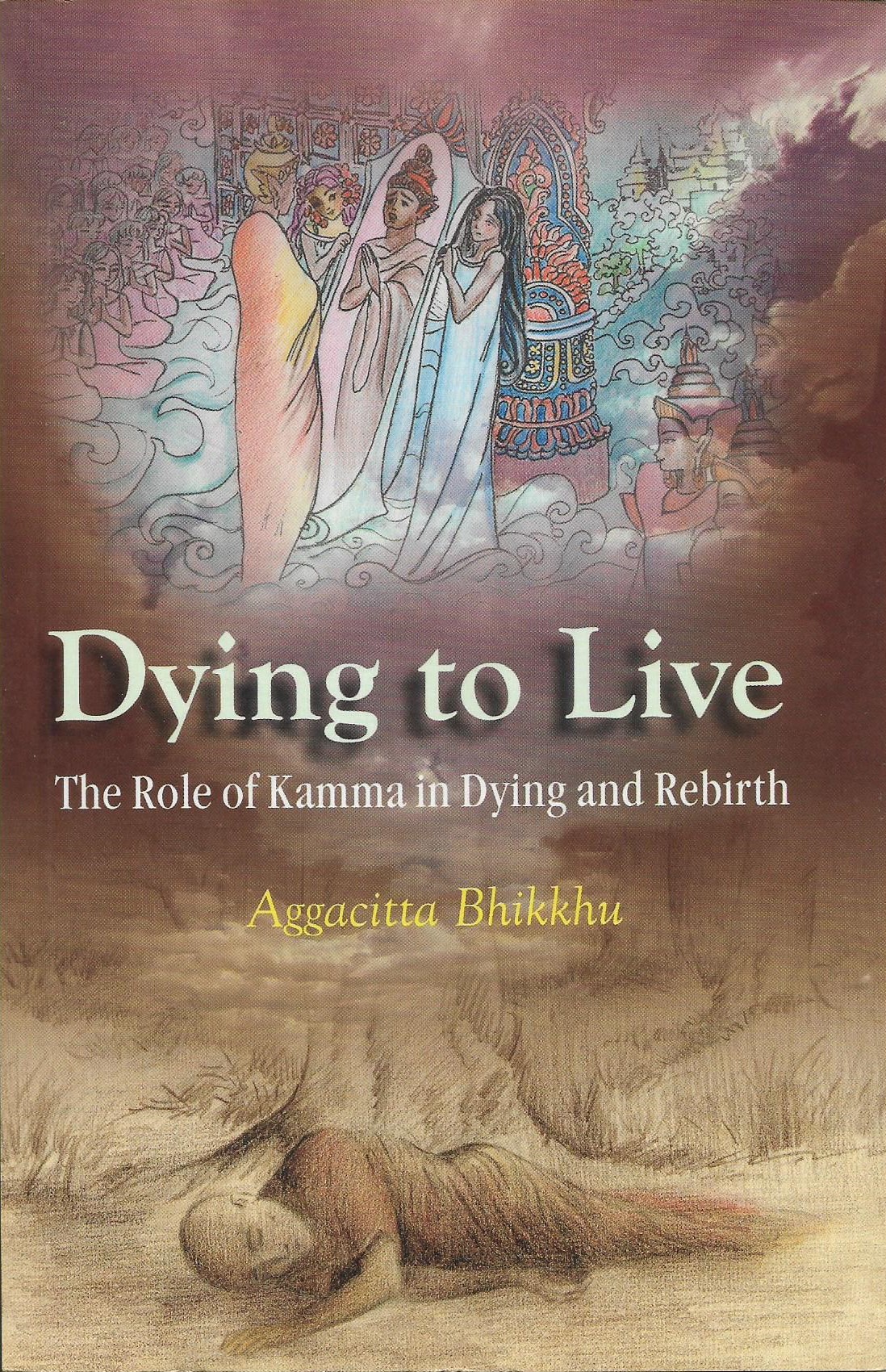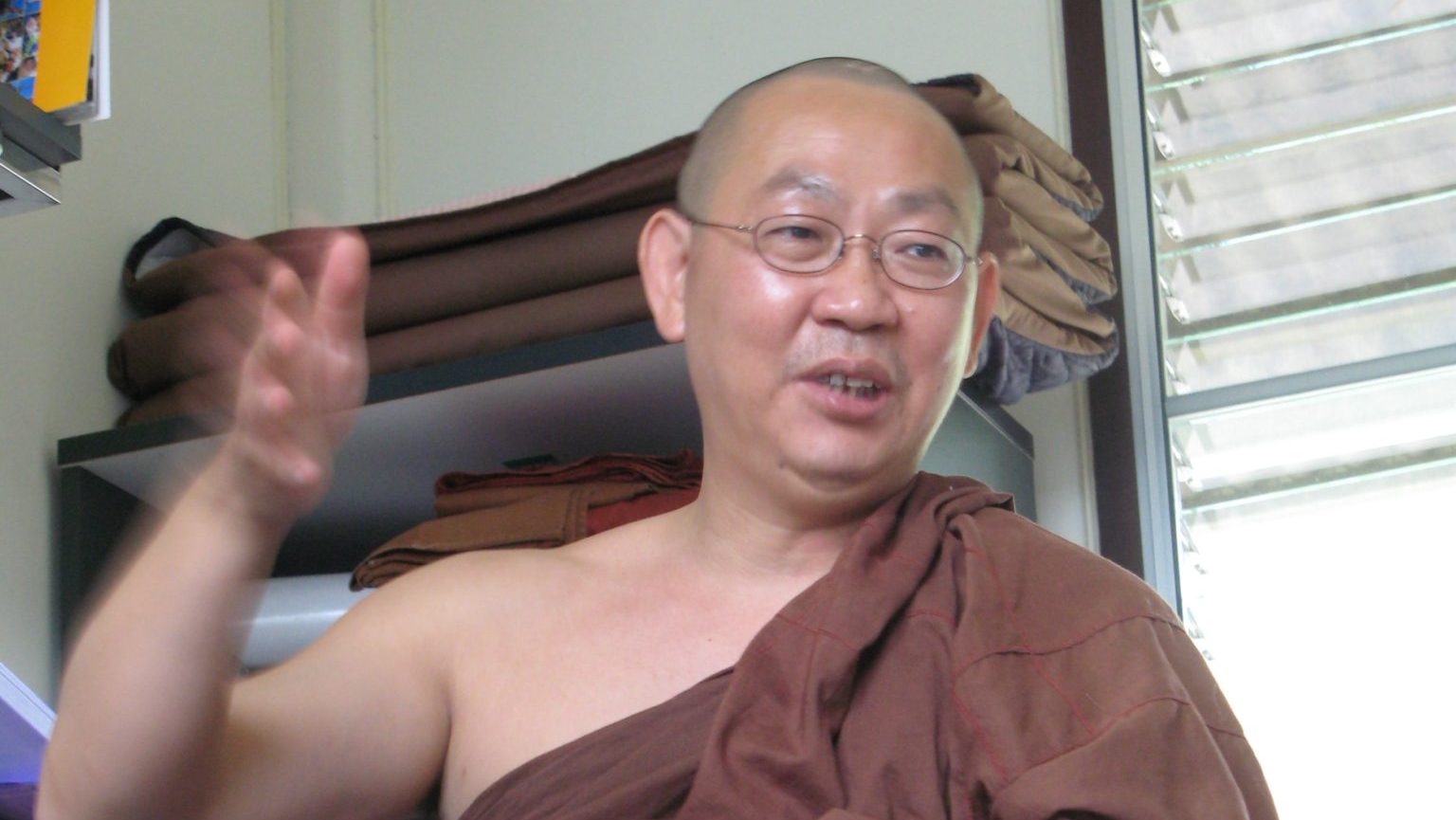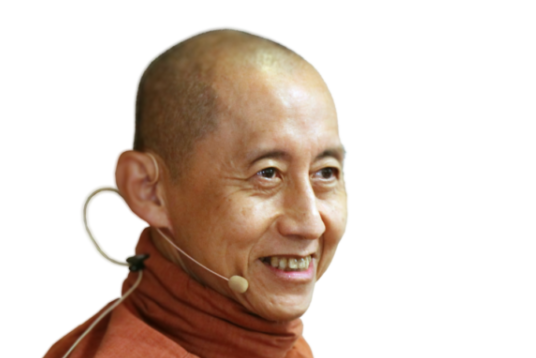Teachings
AUDIO & VIDEO
EDITOR’S CHOICE
BOOKS

Jhana Training Manual
by Tomas Piskacek
Step-by-step journey from Mindfulness to Cessation: This manual provides comprehensive practical guidance for developing the jhanas—profoundly serene and blissful states of meditative concentration. It is designed for mind training in meditation retreat settings and includes on- and off-the-cushion practical advice.

SBS Pāli – English Recitations
In order to foster understanding, memorization and penetration of the Buddha’s teachings, most of the chants contained in this book are recited in Pāli and English line by line in an alternating manner. In this way, over time the chanter becomes increasingly familiar with the phrases and underlying meaning contained therein, whereby a vocabulary of important Dhamma phrases and Buddha quotes grows in the mind of the reciter.

Dying to Live
by Āyasmā Aggacitta
REBIRTH IS UNCERTAIN
How one dies will determine his future destiny. We may say that in general, how one dies largely depends on how one has lived. Nevertheless, there is no certainty that an ordinary person who has tried to live a pious and moral life will be reborn in a favourable realm of existence, or that a murderer will take rebirth in one of the woeful states.

Māgadhabhāsā (Pāḷi) – A Compendious Grammar on the Language of Pāḷi Buddhism
by A. Bhikkhu
This book facilitates access to and distills the information contained in numerous Pāḷi grammar books, by collating the dispersed material contained within them, while some of its contributions are not found elsewhere.

The Making of Sāsanārakkhā Sīmā – A Vinaya Report
by Āyasmā Aggacitta and Ā. Kumāra
This report provides technical details of significant events in the making of the Sāsanārakkhā Sīmā, which is a designated area in which the Saṅgha performs legal procedures such as ordination, the fortnightly recitation of the Pātimokka etc.

The Kamma of Arahants
by Āyasmā Ariyadhammika
Actions of Arahants are usually said to be merely functional (kiriya), and the term “kamma” is normally not used in reference to Arahants’ actions. But is such a distinction warranted? This study looks into this topic from the perspective of the discourses and offers insights into the question of whether an Arahant’s actions should be called kamma, kiriya (functional), both, or neither.

Anatta
by Āyasmā Aggacitta
Anatta, the concept of not-self, can be very confusing. We say: Nothing belongs to me; ‘not mine, not me, not my self’; all the mental defilements are just external visitors who come in and defile the mind. Then where does self-responsibility come in? If there’s no one there, who will reap the consequences of one’s actions?

Why Pick-shoo me?
by Āyasmā Aggacitta
Theravāda orthodoxy may not pick on or shoo away a non-Theravāda bhikṣuṇī, but it would certainly cause anyone who advocates the revival of the Theravāda Bhikkhunī Saṅgha to ask, “Why Pick-shoo-me?”

Do We Go to the Triple Gem for Refuge?
by Āyasmā Aggacitta
BUDDHISTS are often told to take refuge in the Triple Gem, and many believe that they actually do.
This book is available in English and Chinese.

The Importance of Being Morally Virtuous
by Āyasmā Aggacitta
Killing, stealing, sexual misconduct, lying and taking intoxicants are universally censurable. One who does these things is considered immoral while one who abstains from them, morally virtuous;and they are karmically responsible for their actions-whether or not they have undertaken the precepts. Nonetheless, undertaking the precepts can help reinforce kindly dispositions and change unkindly ones.
This book is available in English and Chinese.

Awaken to Truth in Harmony: A Trilogy
by Āyasmā Aggacitta
Practitioners walking the spiritual path to awakening are often confused as to which meditation method is really correct.
This book is available in English and Chinese.

Dhamma Therapy Revisited: Cases of Healing through Vipassanā Meditation
by Āyasmā Aggacitta
Ven Aggacitta coined the term “Dhamma Therapy” in the early 80s while he was translating Ven Mahasi Sayadaw’s compilation of cases of miraculous healing in the course of intensive Vipassanā meditation – cases either related personally by the meditators or recorded by highly competent meditation teachers.


Coping With a Handful of Leaves
by Āyasmā Aggacitta
Can any one method of vipassana meditation claim superiority over another? Then again, is it true that absorption concentration is an absolute prerequisite to vipassana? These are some of the perennial debates that haunt Buddhists walking diverse roads to liberation from samsara.

Honouring the Departed: A Buddhist Perspective
by Āyasmā Aggacitta
The canonical procedure of dedicating merits.

Role of the Sangha in the New Millennium
by Āyasmā Aggacitta
This booklet, published in conjunction with Sāsanārakkha Buddhist Sanctuary’s Kathina 2003, is the paper that Ven Aggacitta presented in the Forum “Role of the Sangha in the New Millennium” at the Global Conference on Buddhism held in Shah Alam, Malaysia, in December 2002.

Discourse on Atanatiya Protection with the Protection in Pali
by Āyasmā Aggacitta
4 Guardian Kings
Discourse on Atanatiya Protection with the Protection in Pali as well – a condensed version based on various translations from the Pali.

Kathina Then and Now
by Āyasmā Aggacitta
The kathina ceremony is now an internationally established celebration where the Sangha and the laity meet to participate in mutually rewarding, meritorious activities. Throughout the centuries, the way of carrying out the ceremony has changed with local interpretations, practices and customs. How much has deviated from the original scriptural tradition— how much is in accordance with the scriptures and how much is mere invention?
ARTICLES

Poems and Inspired Utterances (Udānas)
by Āyasmā Ariyadhammika
A collection of illustrated poems related to Dhamma and meditation.

iDHAMMA – interactive Dhamma Guide
by Āyasmā Khemadhammika
Would you like to explore the Dhamma in an interactive way, and understand how different aspects of the Buddha’s teachings relate to each other?

Healthcare or Nightmare
by Āyasmā Ariyadhammika
Reflections on the benefit-cost ratio of medical treatments for family and Saṅgha members


Coming to Terms with COVID-19
by Āyasmā Kappadhammika
Reflections on the ongoing pandemic, its impact, and how to deal with it skillfully from a Buddhist perspective.

Growing Our Heart and Mind in Times of COVID-19
by a Resident Monk of SBS
This article illustrates how the current pandemic can be used as fertilizer for one’s Dhamma practice, by mutual development of two very different qualities of mind.

Cure Discovered for Fatal Virus
by SBS Monk Training Centre
What’s the world’s truly most fatal virus?


Don’t Be Nice. Be Kind.
by Āyasmā Kumāra
Yes, don’t be nice. But don’t get me wrong. I don’t say be rude or nasty. But really, don’t be nice. Be kind instead.

The Snobbish Monk
by Āyasmā Kumāra
Bhante Kumāra shares about being informed by a yogi that he initially found Bhante to be quite snobbish.

Eating Right
by Āyasmā Kumāra
Āyasmā Kumāra shares eating right as it is commonly understood that monks are not supposed to be choosy about their food and should eat whatever is given to them.




Copyright Infringement and Vinaya
by Ajahn Varado
Ajahn Varado shares his thoughts on a contentious issue. Although meant for monks, it is just as relevant for the laity.

A Winning Thoroughbred
by Āyasmā Balacitta
Ven Balacitta shows how a lay person can win praises from the Buddha and be a first-class thoroughbred.





TRANSCRIBED TALKS







































































Personal Experiences
By: Venerable Aggacitta, Venerable Kumara, Venerable Balacitta and Venerable Attarama














Jealousy and How to Deal with it
Venue: TIMS I was asked to comment on an incident highlighted in the newspapers recently about the mur-der of a Malay student by his fellow




















Mangala Sutta: Imperturbability When Encountering the Eight Worldly Dhammas
by Āyasmā Aggacitta





Loving kindness, Giving and Meditation as Antidotes to Destructive Emotions
by Āyasmā Aggacitta






























Blessings, continued – Special occasion: Death anniversary of Long Heng Hua
by Āyasmā Aggacitta









